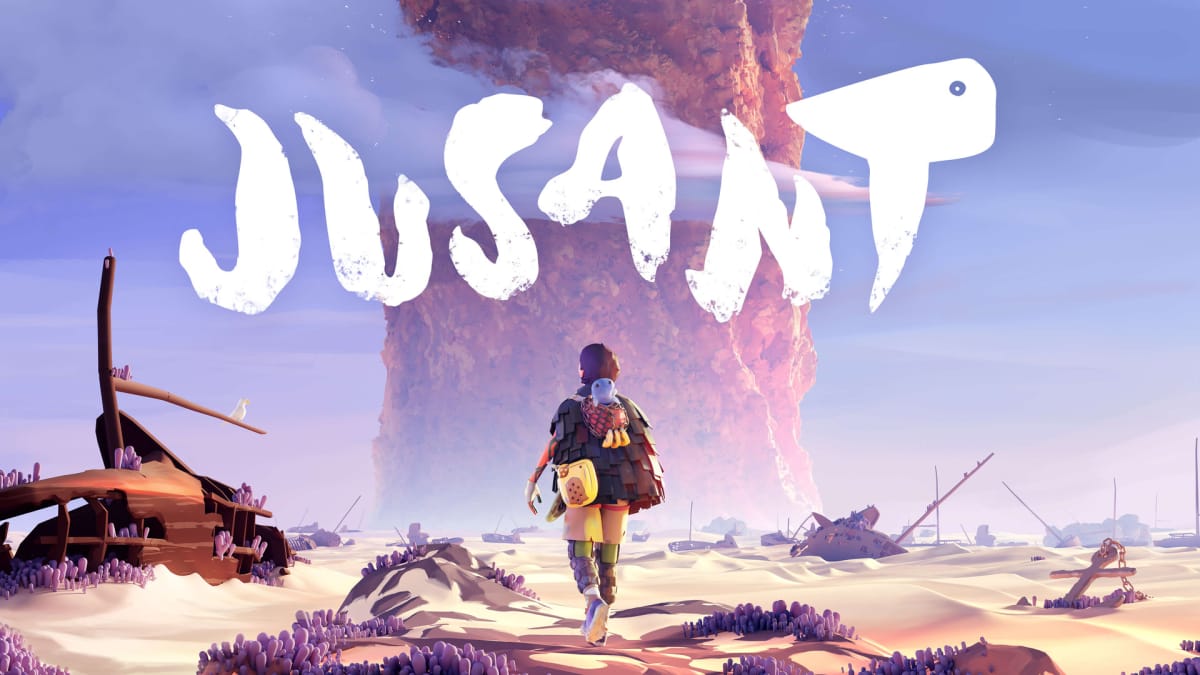As climate change continues to be a point of unnerving discussion in regards to the future of the planet and humanity, its stature in video games has always been from the point of integration. There needs to be an answer, or even a savior, and wouldn’t you know it, the mountain-climbing affair of Don’t Nod’s Jusant attempts to provide exactly that, but is it a successful hike? Or a dizzying fall? Read our Jusant review to find out more.
This is the latest release from French-Canadian studio Don’t Nod, of Life is Strange and Vampyr fame, and a stark departure from what they’re known for. You play as a nameless adventurer who comes across a large rocky spire in the middle of what was once a raging ocean. Together with a water-based creature named Ballast, you start to climb the tower, learning about the society that lived along its walls, and figuring out how to bring water back to these lands.
When I say that Jusant is a departure from Don’t Nod’s previous work, it’s for a smorgasbord of reasons. There’s a clear gameplay loop, not just of thematic relevance, but challenge and reward, and there’s a complete omission of dialogue, choosing only to exposit in text logs and visual direction. These are new challenges, and indeed, it does partially result in some of Don’t Nod’s most intensive work.
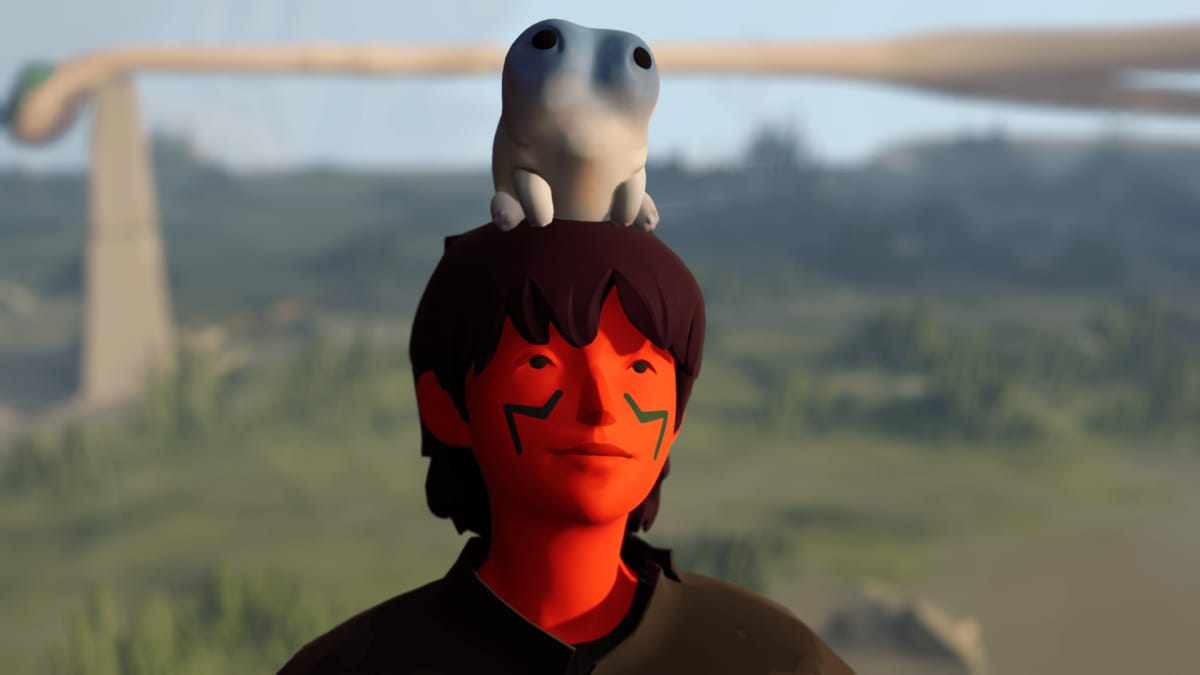
Lemme tell ya, Jusant’s introduction is so strong. Your character’s control scheme is reminiscent of a jokey physics platformer, complete with very loose animations but with the reins kept close to curb comedic shenanigans. With the hands alternating between trigger presses on controllers, it quickly becomes quite fluid, even when the animations bugger up and your character looks like a Skate 3 glitch. Yet despite this, it remains second-nature—a cyclical experience that is briefly unequaled in its format.
The game is also quick to provide a mixture of climbing techniques to the player very early on, thanks to the adorable blob of aqua pura that is Ballast. With the way they interact with the environment and what they provide for the player in terms of finding collectibles, it presents a pleasant pairing of environmental storytelling and rewarding exploration. It’s a delightful world to uncover in its initial stages, and Jusant knows when to play its hand.
Part of the wonder and pizazz comes from Don’t Nod’s efforts in restriction. Sound design plays a huge part in making Jusant majestic, and that largely comes from its complete removal at points. The score only shows up in cutscenes and very brief moments of eloquence and introspection, doing well to not suffocate the magic driven by how the player comes across it in their own traversals.
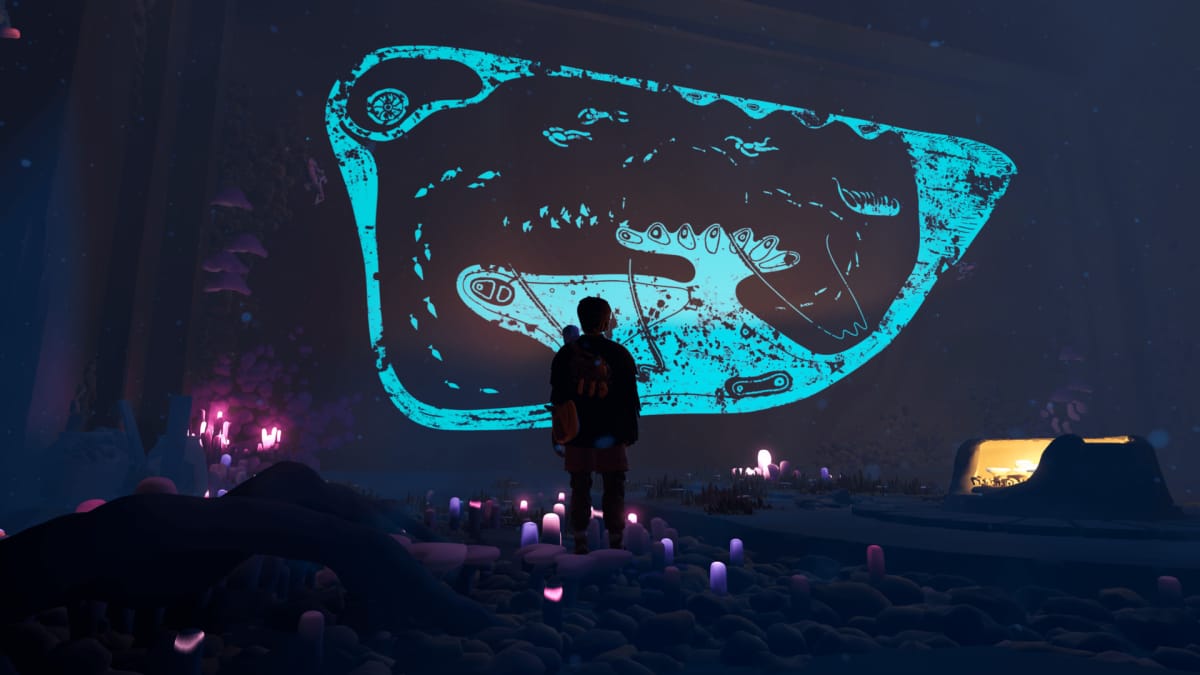
The main source of that magic comes from the visual design. As mentioned in our preview, Jusant displays a heavy sea-faring aesthetic while completely omitting the presence of any water, and that art direction is so strong, you can practically smell the sea salt. It lends into the world-building quite well, as Jusant is confirmed to not take place on Earth but an off-shoot, showcasing a culture that feels quite original in its own core.
Forgive the pun, but Jusant has such high peaks, ones that left me driven to succeed as I climbed higher and higher, the game pulling out all the stops to provide a soft motivation to carry on. Initially, it wasn’t just a personal ambition, but a goal wrapped in world-saving tropes that doesn’t play off simple cliches or standardization of heroism. It’s an execution that bounces from zen to stress in a snap, and it's a humble flex of Don’t Nod’s talents.
Then it all stops. After that peak is reached, Jusant decides to box you inside a claustrophobic arena of camera issues and rather uneventful level design, losing its luster in the hopes that its downtime can provide some sort of further introspection. It's here where the game's wonder and mechanical enlightenment is dragged down by the idea that, rather ironically, its variety comes from nurture as opposed to the nature it inhibits.
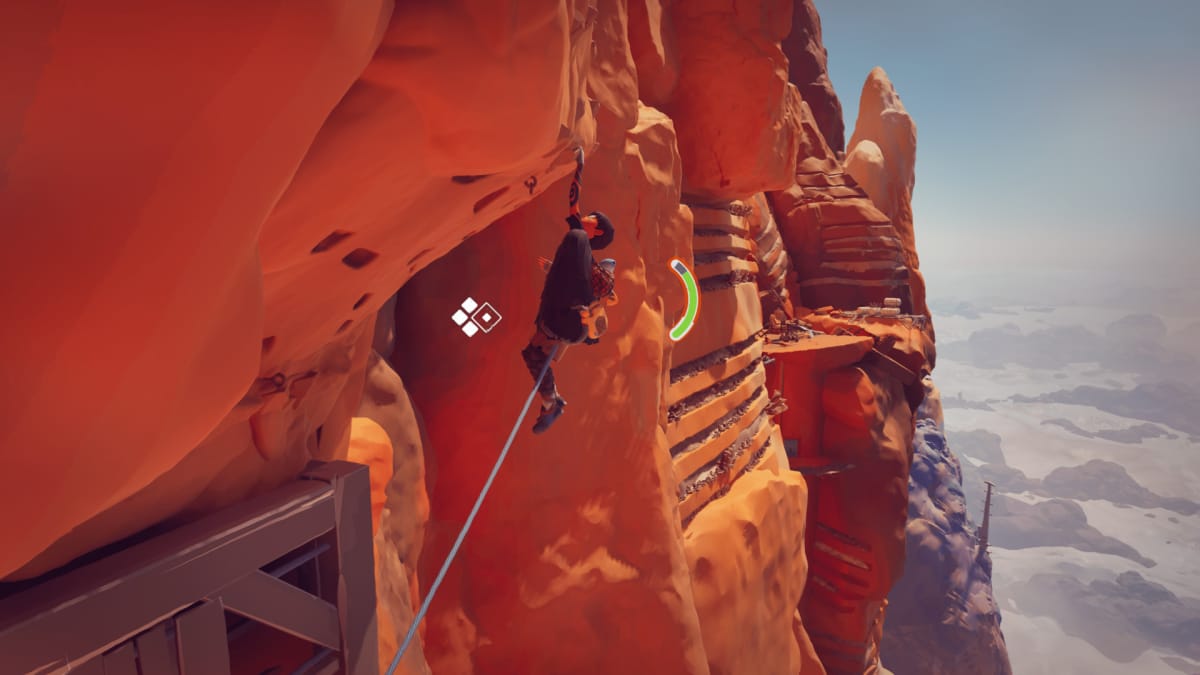
There’s no flow in the final stretches of Jusant, only a conveyor belt that demands a conclusion, one that lacks the build-up, tonal consistencies, and wonder you’d expect from Don’t Nod. There’s no room for exploration, no time for ruminations; you have to solve this issue NOW. But the game's biggest problem is telling this story from the wrong angle.
It’s hard to find sympathy in the world Jusant creates because there’s no one to know what I’ve done. Even if the old adage, “A society grows great when folks plant trees when they know they won’t see the shade” were true, the complete lack of character, a committee, council, or a country dashes any attempts to empathize.
We’re clearly talking about an extinction of something here, but of what, of whom, of which cause am I fighting for? If I'm fighting for someone or something, where are they?
In the various text logs you’ll find scattered around the world of Jusant, you’ll find a lot of pragmatic depictions of the struggles faced. Even Bianca, one of the only characters to have a complete arc within these logs, can’t escape this empty rhetoric that refuses to pose questions; it merely acknowledges the crap they’re forced to deal with. Only once is animosity sown inside this culture, and that is brushed off with no less a shrugging of shoulders than the rest of Jusant’s dilemmas.
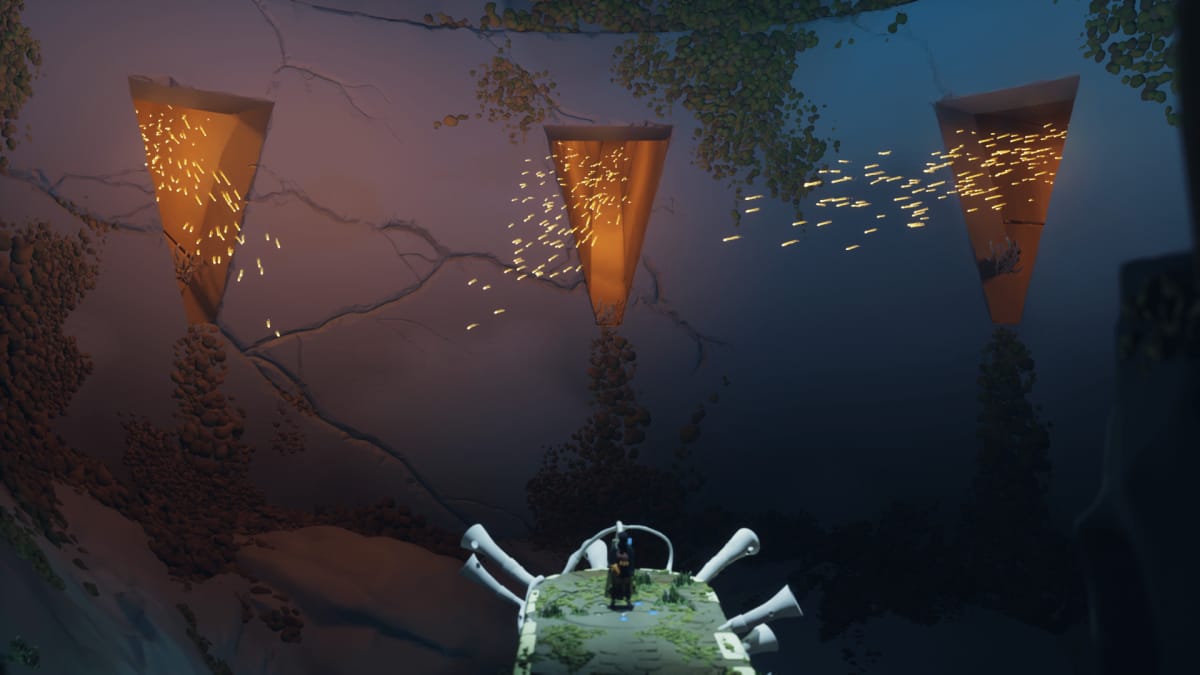
Should there be a question posed? Is it indicative of our own society’s struggle to engage in co-operation with a nebulous threat like global warming? Well, the answer is either “yes” or “no,” and Jusant seems to play on the fence at all times. It loses balance but never falls off the line of sticking to a schedule, much like the world, which may be overt genius if its intent was to project metaphysically.
As it stands, it comes across as a soft resignation that when we escape, the generation before will know the problem and its solutions, which breaks the mood.
Jusant Review | Final Verdict
I wanted nothing more than to adore Jusant’s gameplay and fairly original world, but the story demands a conclusion, one which rots in the face of poor pacing, and I’m left standing maudlin in a world that no longer wants to be seen.
"You had fun saving the world!" the game seems to say, but I’m only left hoping that someone else is there to know this. It doesn’t come down to a lack of reward; I don’t want a pat on the back, a kiss on the cheek, a gold trophy, or 100 gamerscore. I just want to know if the world is going to be OK, but apparently that’s not my problem.
Jusant was reviewed on Xbox Series S with a copy provided by the developer over the course of 15 hours of gameplay - all screenshots were given by the developer for the process of review.
Review Summary
Pros
- Satisfying climbing mechanics
- Absolutely beautiful art direction
- Fantastically executed sound design
Cons
- Story is a complete bust
- Characterization is weak throughout
- Saccharine tone is undeserved more often than not
Have a tip, or want to point out something we missed? Leave a Comment or e-mail us at tips@techraptor.net
